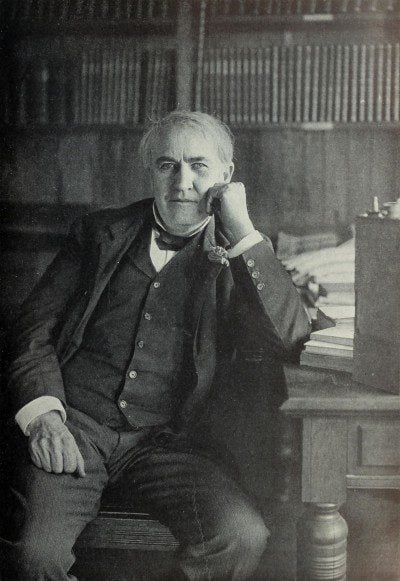Have you ever had a premonition? It’s the feeling that something good or bad is about to happen to you, often with specific details, that’s often so strong you just can’t shake it. I like to think of it as your intuition on overdrive. In the book The Power of Premonitions, Larry Dosse describes them this way:
A premonition is literally a forewarning. It is a glimpse of the future, a feeling or sense that something is about to happen. They can warn us of something unpleasant, such as imminent danger or a health crisis, or announce something totally agreeable such as what the winning lottery numbers are or where to find a parking spot.
The most dramatic cases involving premonition involve major disasters. There are numerous stories about people who had visions of the 9/11 attacks or had the sudden feeling they shouldn’t board an airplane which later crashed. Premonitions can also occur around everyday events, like thinking of a friend or acquaintance from your past and suddenly receiving a text or phone call from that person.
Where do these premonitions come from? Are they merely coincidences? ESP? Messages from God instructing us to take action? Or is the cause of premonitions rooted elsewhere?
Those in the religious community mostly seem leery of premonitions. While people like Thomas Edison believed we could tap into a greater intelligence (that some refer to as God) for guidance, a more common theme among Christian websites is that they cannot be trusted. As one site says, “to know God’s will, we must study the Word, pray, and pursue a deep and personal relationship with God.” Edison believed he merely needed to sit in a dark room to achieve this relationship.
Another, stranger theory around premonitions comes from the scientific community: It’s the idea that all time already exists—past, present and future—but the human brain is only able to recognize the present moment. It could be because too much knowledge would simply overwhelm us. Yet now and then, these glimpses of the future slip into our consciousness and result in what we call premonitions. Dossey explaimns it like this:
Past, present, and future are simultaneously present, laid out in what physicists call a block universe. “Future knowing” would be a misnomer because the future and the present actually exist at the same time.
A similar concept is that premonitions are rooted in a universal consciousness that we all can tap into. David Bohm, considered “the godfather of modern physics,” stated that “deep down the consciousness of mankind is one.” Fellow physics expert Henry Margenau believes that “each individual is part of God or part of the Universal Mind…all things and processes—past, present and future—are open to its grasp.”
But how do you know when a premonition is legitimate as opposed to paranoid or delusional thinking? Dossey has come up with a list of 4 ways to judge our premonitions, a screening process that can help inform you whether you should pay attention to what the future is possibly telling you or ignore it.
4 Premonitions You Should Pay Attention To
#1. Pay attention to premonitions that are accompanied by physical symptoms.
Dossey believes that physical symptoms can alert us to premonitions that should be seriously considered. Something as simple as a headache that accompanies our premonition should cause us to stop and take notice. I’m reminded of the story of the New York man who had told his wife about a series of premonitions of his impending death. On the morning of September 11th, he had a sudden and severe attack of vertigo—but insisted on going into the office, only to die when the second plane hit the Twin Towers.
#2. Pay attention to premonitions if they are intrusive and insistent, as if clamoring for attention.
Dossey tells the story of the great psychologist Carl Jung who, while returning home from out of the country by train, had the overpowering image of someone drowning. The image was so strong Jung couldn’t focus on the book he was reading. When he reached his estate, his grandchildren ran up to him and informed Jung that one of the boys had fallen into the deep end on his lake and had almost drowned.
#3. Pay attention to a premonition when it indicates death, no matter how fuzzy the details may be.
Dossey writes of psychologist Jerome S. Bernstein, who has described many premonitions that preceded tragedies, and believes a premonition is “a literal message to take action, for we may not have a second chance.” For instance, there’s the story from a few years ago about a Utah woman who, while at work, had a premonition that her husband was in grave danger. She rushed home to find him pinned underneath the SUV he was working on, arriving just in time to save his life.
#4. Pay attention to premonitions when they seem intensely real.
This often happens in dreams, when the dream is so intense and realistic you have the urge to write it down or share it with others. I once had a very real dream that a friend’s wife was standing outside an old Western courthouse, waiting to see a judge. In the dream, my friend had passed away and his wife was waiting for the courthouse to open so she could collect on his will. It was later that same day that I received word that my friend had passed away, only hours earlier, in a tragic workplace accident. Should I have warned him about my premonition?

















